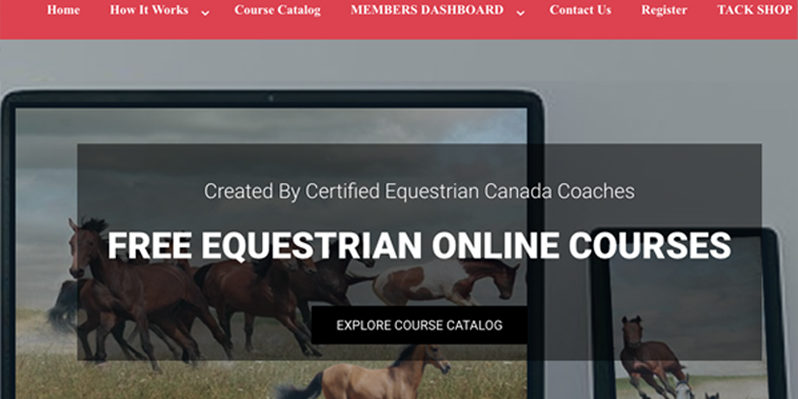Virtual Equestrian is a website offering free certified equestrian online learning courses for horse lovers around the globe. The courses are designed and guided by the Equestrian Canada Learn to Ride Program, a national program, with national standards which are meant to be taught by Certified Equestrian Canada Instructors/Coaches.
Let’s take a look at the Course Catalog
Note: all courses that are currently in development provide an option to receive notification once the courses go live.
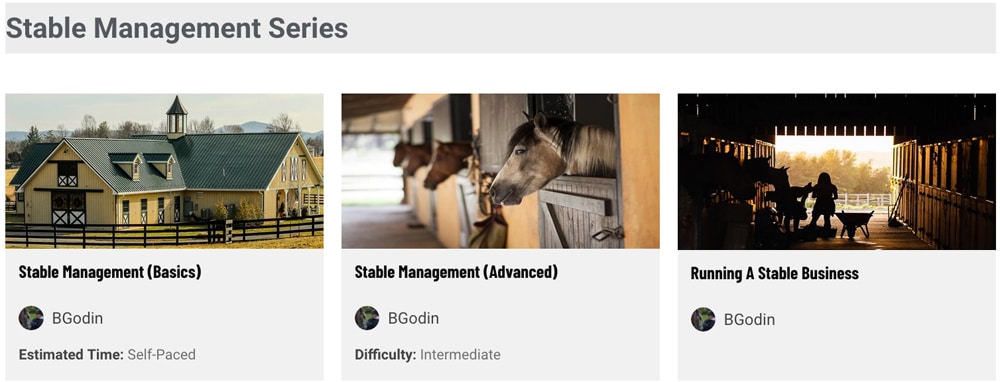
The Stable Management (Basics) is the entry level course and requires a pass grade of 90%. Once completed students will gain access to all FREE ONLINE COURSES offered in the Virtual Equestrian’s Course Catalog. The Stable Management Series covers everything else but riding a horse, this course includes all aspects of owning and looking after a horse. To see a complete list of the topics covered click here.
The Stable Management (Advanced) is the next level in the series and explores in more detail the aspects of owning and looking after a horse. Topics covered include:
- Understand the importance of Parasite Control.
- Discuss dental care, and aging a horse by the wear of their teeth.
- Understand the differences in the types of shoes and their use.
For a complete list click here.
This course is designed to provide the student with the skills needed to properly care for horses in a training, boarding or breeding facility. Lesson topics include everything from building and/owning a small barn to operating a equestrian facility.
For more information or to register click here.
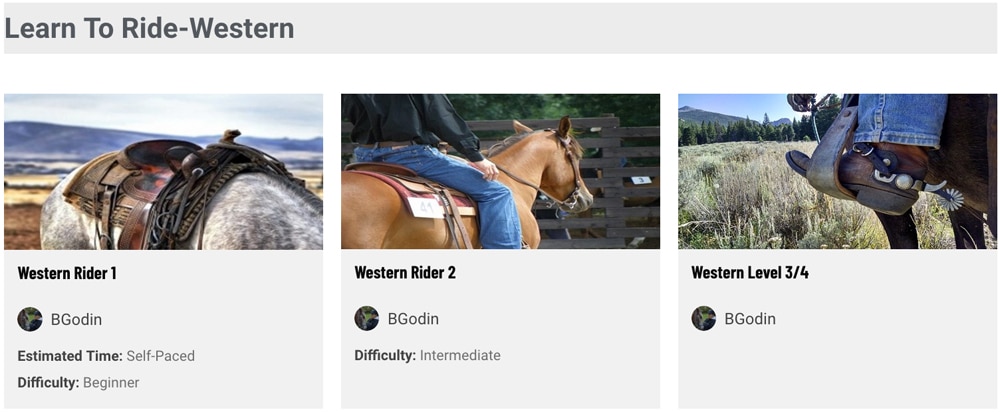
At the beginning stages of a rider’s development, being prepared is the first stage of a rider’s ability to help the horse perform in the freedom of movement he was designed for. A balanced and relaxed rider, free of tension, with good posture and body awareness can give nice clear aids to allow the horse to respond and move properly.
To see a complete list of the topics covered click here.
The Western Rider Level 2 Course will discuss in greater detail how the rider’s ability to feel and be in balance with the horse by recognizing how the rider aids and application of, will influence the horse to better balance and performance. Topics covered include:
- The difference between a trot and a jog.
- Understanding posting trot and being on the correct diagonal.
For a complete list click here.
The Western Rider 3/4 Course will discuss in greater detail, how to apply polo run downs, exercise bandages, hoof bandages as well as spider and figure 8 bandages. Students will learn in more detail the lunging aspects of training a young horse vs retraining a horse, and the fundamentals of riding a variety of western disciplines.
Note: This course is currently in development.
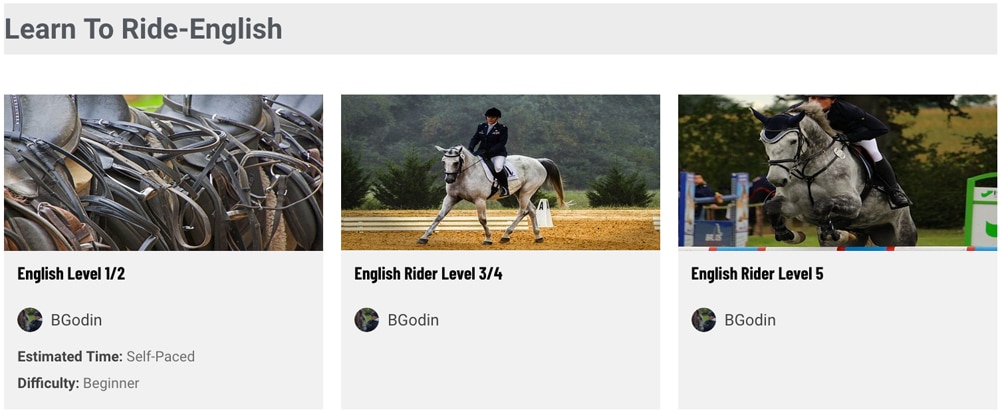
As with the Western Rider 1 course, this course addresses the beginning stages of a rider’s development. Topics include:
- Understanding posting trot, and methods used to post on the correct diagonal.
- Identifying Arena Letter, School Figures.
- The importance of cooling down your horse after each ride.
To see a complete list of the topics covered click here.
Riders at Level 3/4 will demonstrate the ability to ride independently with hand contact that should be as steady as possible to the horse’s mouth at all three paces with equal contact in both hands. In order to achieve these requirements, there should be evidence of an effective rider position. Topics covered include:
- Types of nosebands and how to fit them.
- Types of bits and their use.
For a complete list click here. Note: This course is currently in development.
Details for this course are not available at this time.
Note: This course is currently in development.

There are many terms in use today for the activity that was originally called Therapeutic Riding. There are two terms widely used today; Equine Assisted Activities and Equine Assisted Therapies. This Course explores and discusses each category, with the main focus on Therapeutic/Adaptive Riding.
For a complete description click here.
The primary concern for any Therapeutic Riding Program is a well-trained group of volunteers, who can make a difficult class a pleasant experience and rewarding for all. The preferred method to educate volunteers for the riding portion of the program is to have a session when no riders are present. The Horse Handler/ Side-Walker Volunteer Training Course is not meant to replace the hands on training that is required by all Therapeutic Riding Programs but was designed to complement it. For a complete description click here.
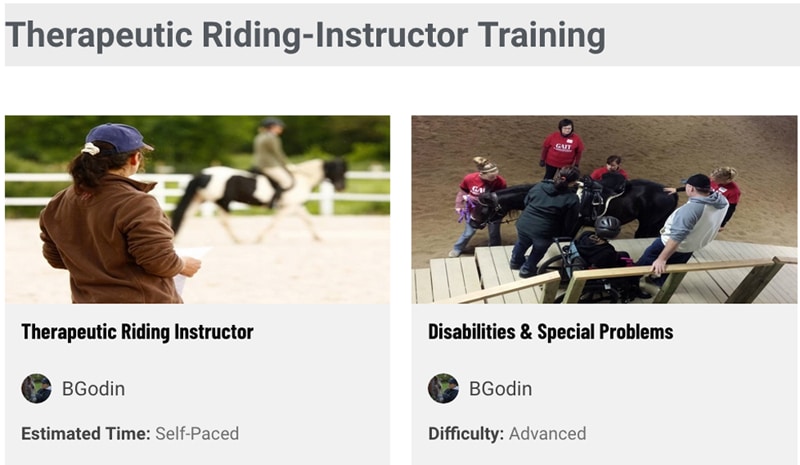
A Therapeutic Riding Instructor must possess extraordinary teaching techniques and powers of inner strength and sensitivity. A Therapeutic Riding Instructor’s prerequisite is an adequate knowledge of physical and non-physical disabilities and how they influence teaching equestrian skills. A Therapeutic Riding Instructor works not only with riders but with a myriad of volunteers from varied social, economic, vocational backgrounds, and should exhibit above average intra-personal relationship skills.
For a complete description click here.
This Course will be a fundamental guide to Disabilities commonly associated with individuals who ride in a Therapeutic Riding Program. Topics covered will include:
- Description of the correct equipment that will support each riders needs.
- Understanding Movement Terminology.
- Understanding Human Anatomy & Muscles Used For Riding.
To read a complete description for what is planned click here. Note: This course is currently in development.
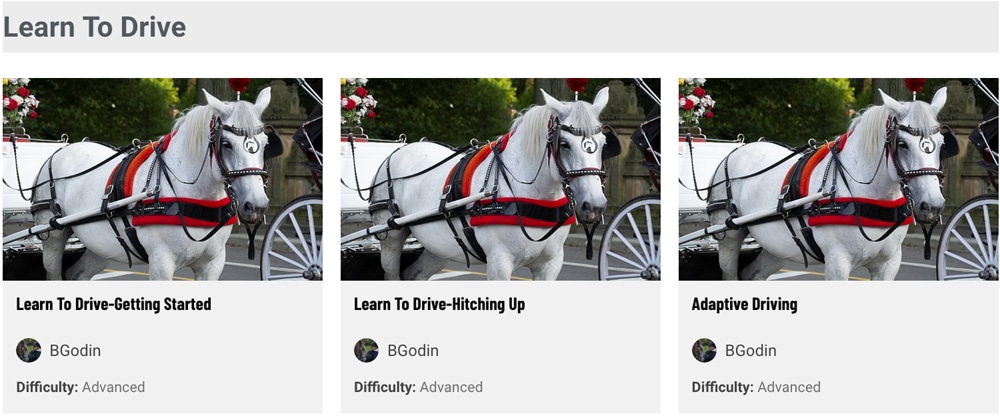
The Learn To Drive Courses will provide an orderly set of lesson topics to prepare the beginner driver or drivers who have experience. The course curriculum consists of driver safety, welfare of the horse, simplicity, and a building block approach. Note: These courses are currently in development.
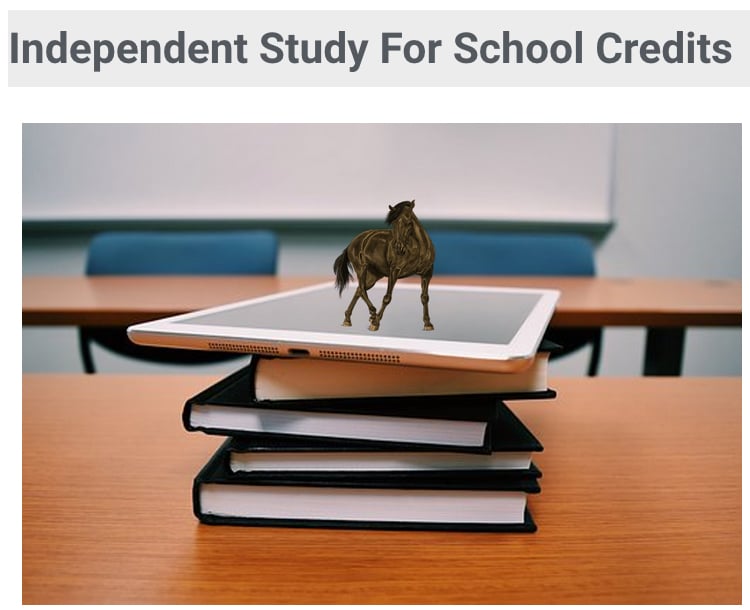

Equestrian online learning with The Virtual Equestrian offers grade school students who are interested in horses a unique way to earn School Credits! Students must receive approval from their teacher, school division, and/or parent/guardian prior to registration. Visit their website to find out more.
Click here to find more equine online learning opportunities in Horse Lover’s Math’s Courses & Careers section.


